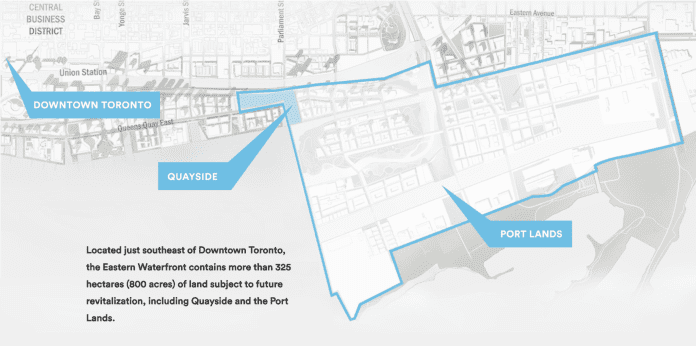Area outside of Toronto targeted for a holistic smart city build
Sidewalk Labs, a subsidiary of Google-parent company Alphabet, is planning to build a smart city from the ground up in an area of Toronto southeast of downtown called Quayside. In many smart city projects, municipal leaders struggle to move from limited pilot projects to a full integration of smart technologies on a large-scale basis.
Sidewalk Labs is partnering with Waterfront Toronto, a group set up in 2001 by Ontario’s provincial government with the charge of revitalizing the city’s waterfront area into what Chief Development Officer Meg Davis called an area “that will be an exemplar to rest of the world to build cities that have the greatest impact on our future.” The largely undeveloped urban area comprises some 800 acres.
In a vision statement, Sidewalk Labs describes a “new type of place that combines the best in urban design with the latest in digital technology to address some of the biggest challenges facing cities, including energy use, housing affordability and transportation.”
The group envisions a partner-led ecosystem involving ‘people, companies, startups, academic centers and local organizations” working together to rebuild the area as a “global hub of a new industry focused on urban innovation to improve the quality of city life.” Alphabet even has plans to move its Canadian headquarters to the Quayside.
“Now is the ideal time to start figuring out how we leverage technology to start making cities better,” Sidewalk Labs Head of Development Josh Sirefman said. He described a tension between technologists who want to see rapid scalability and urbanists who take a longer-term view. “It’s the convergence of those two ways of thinking that can lead to really powerful outcomes.”

